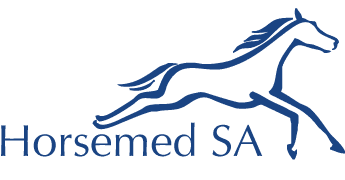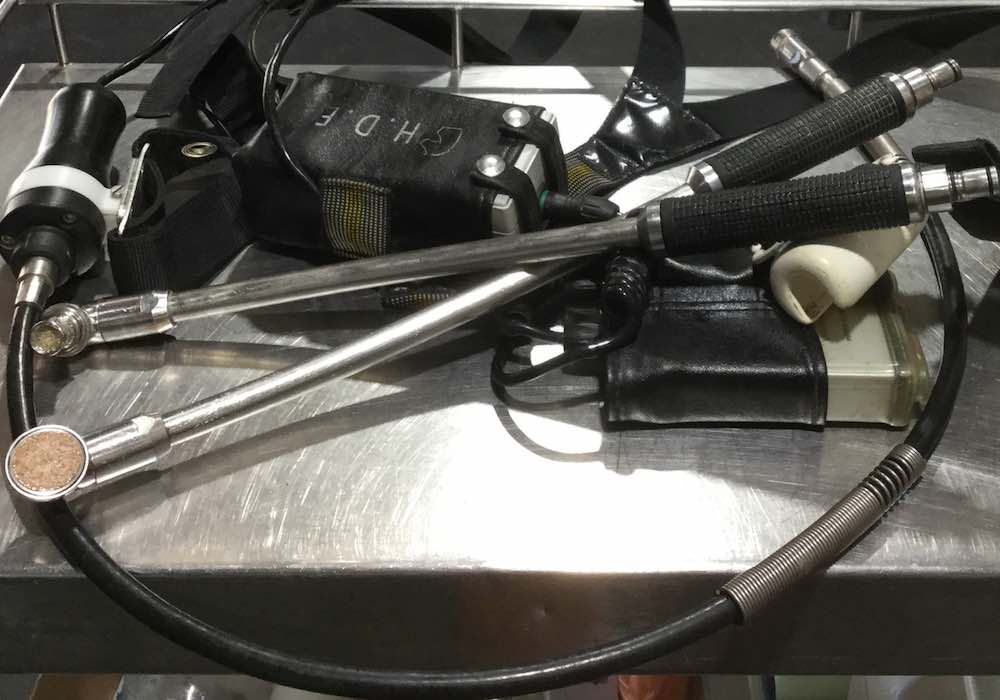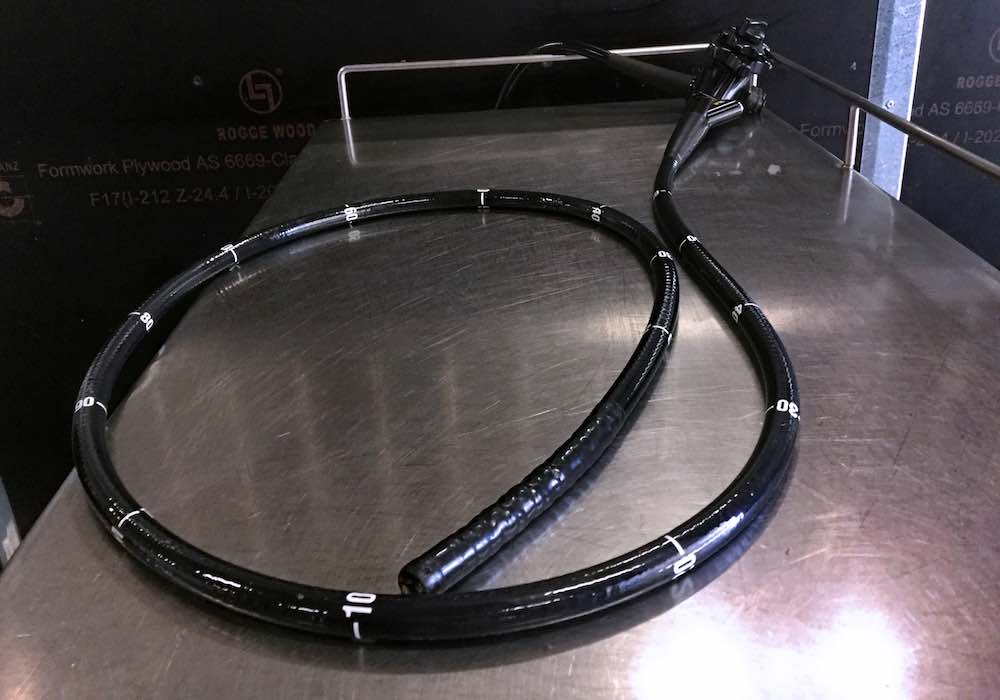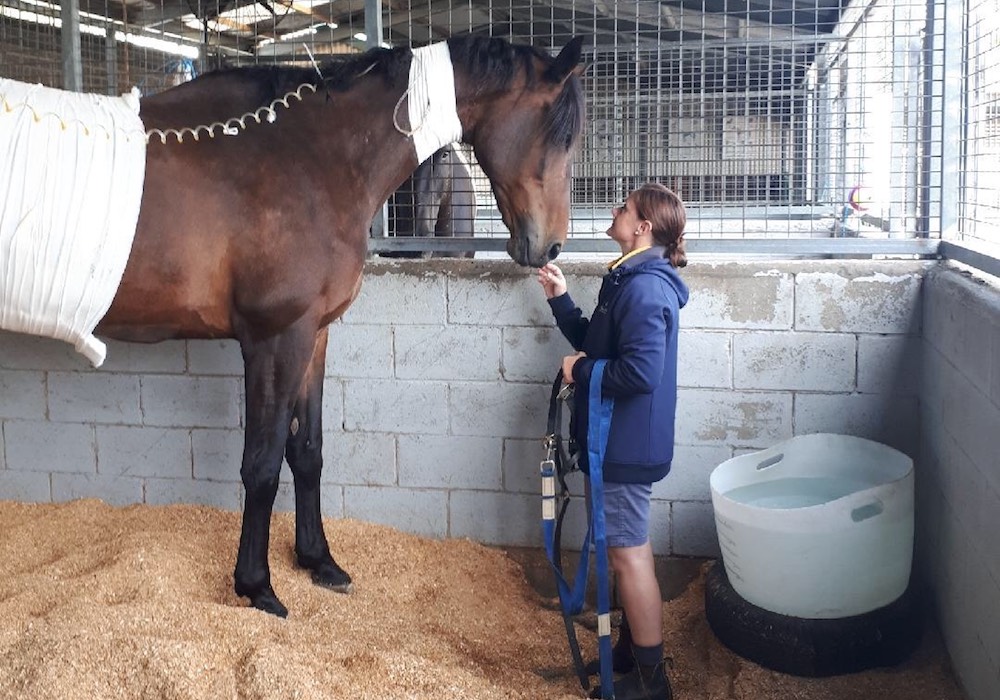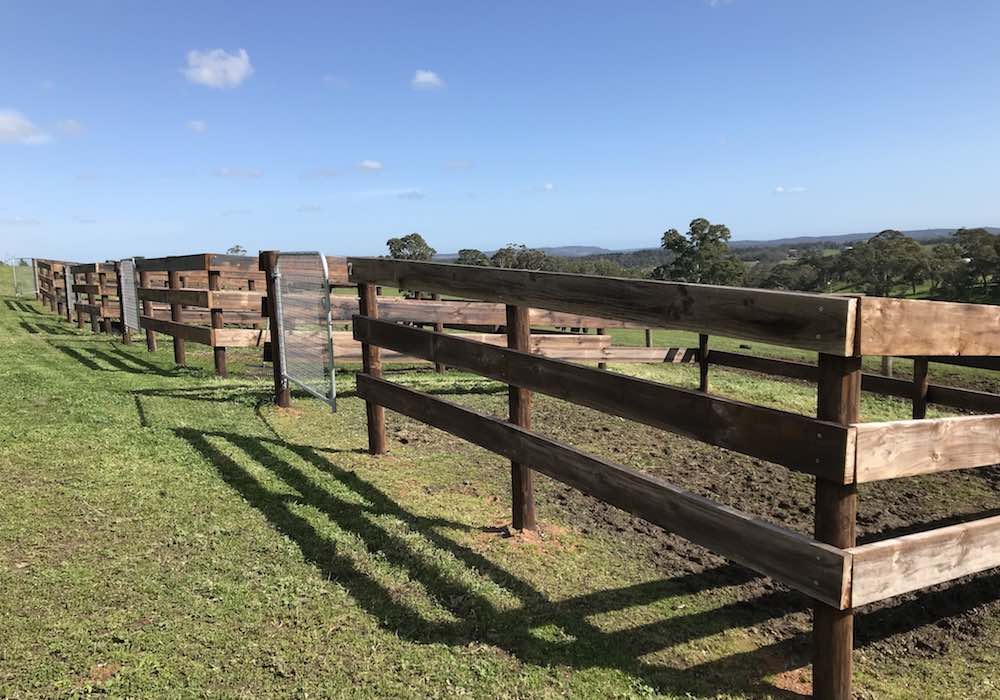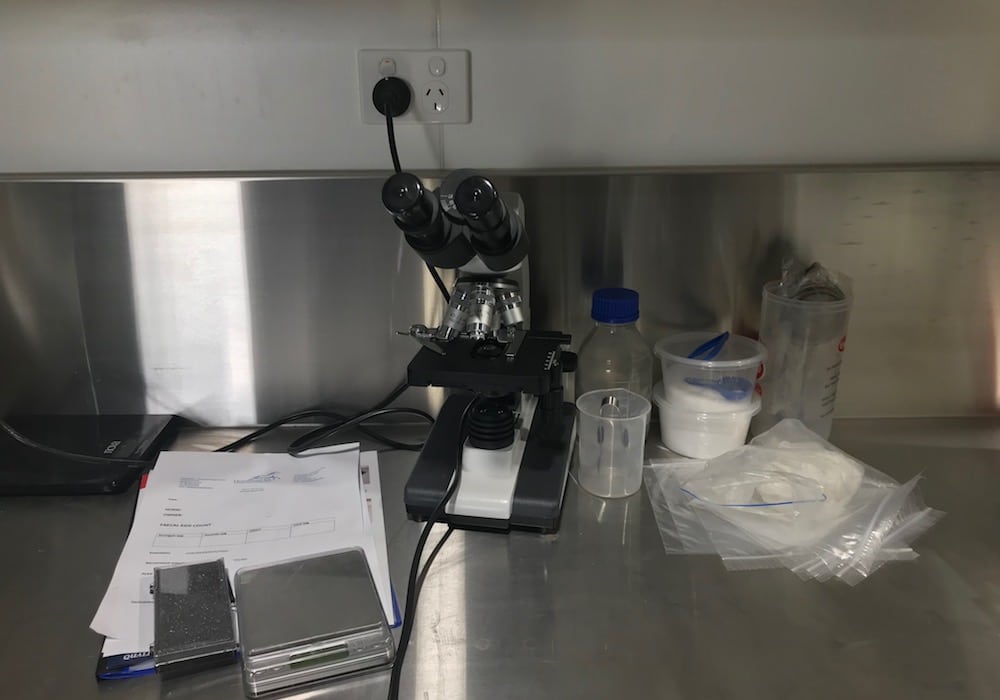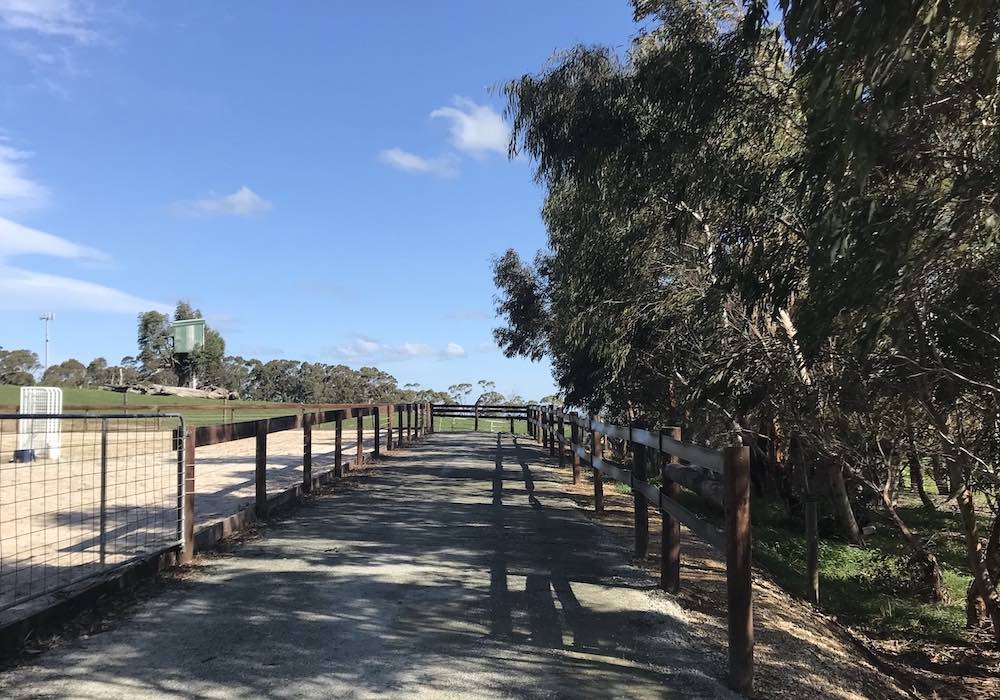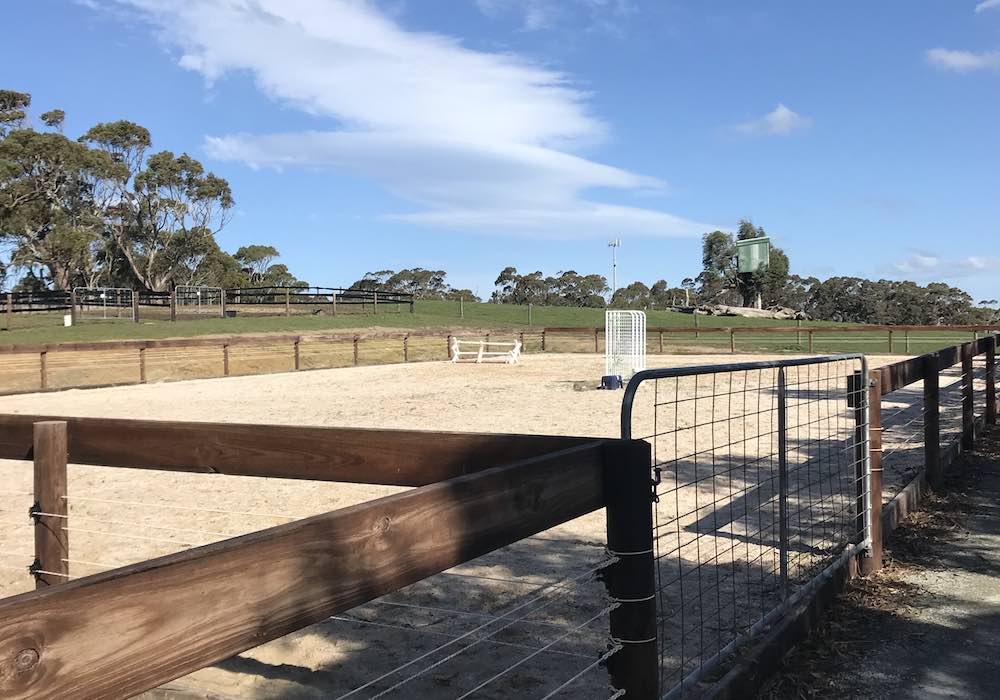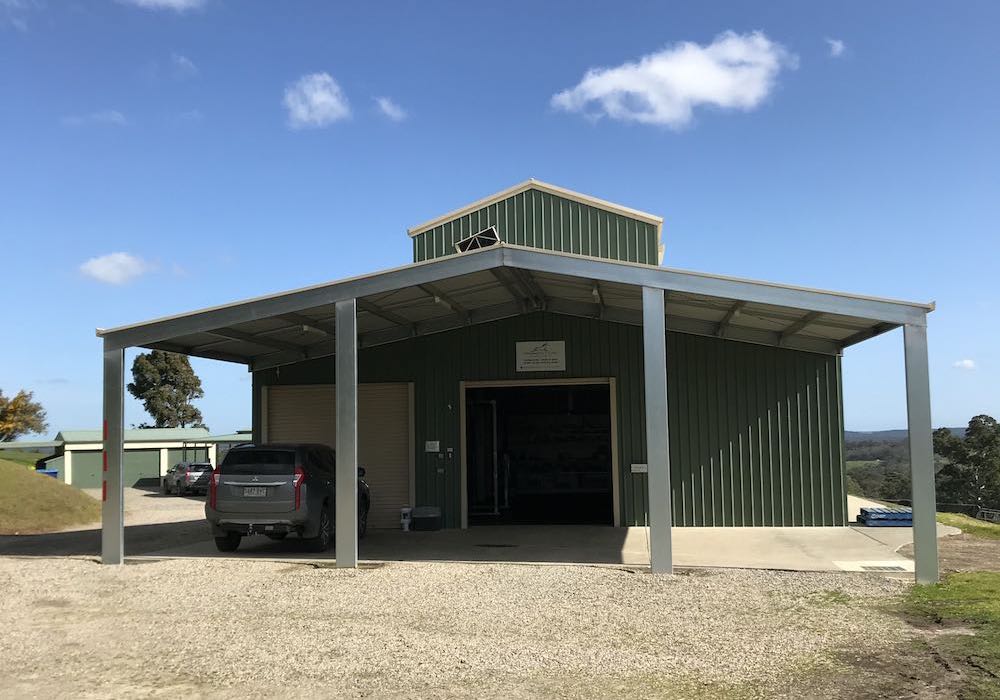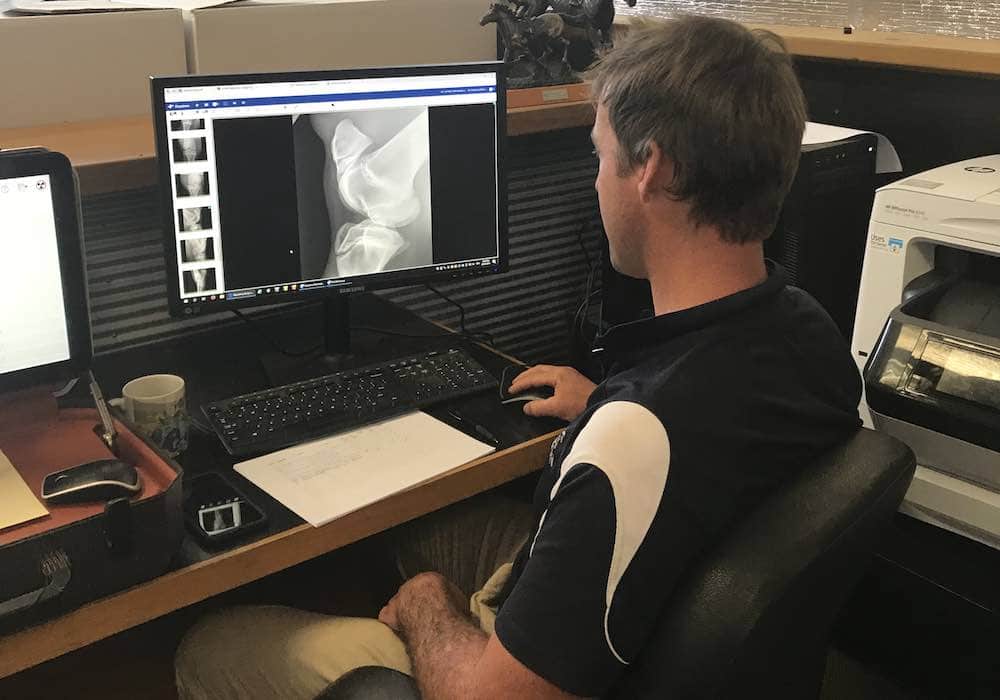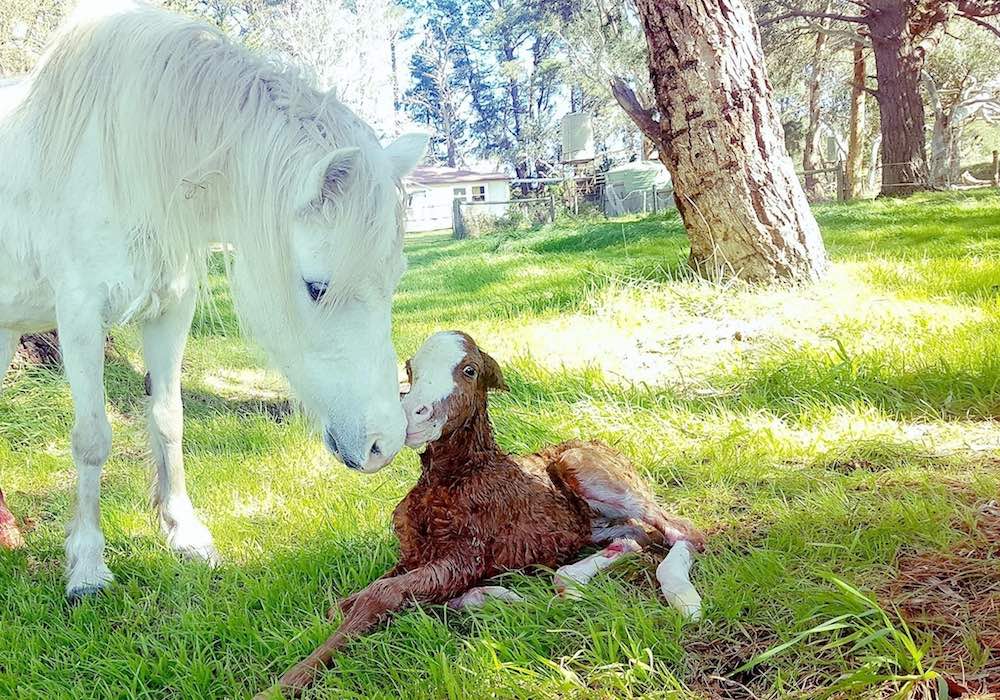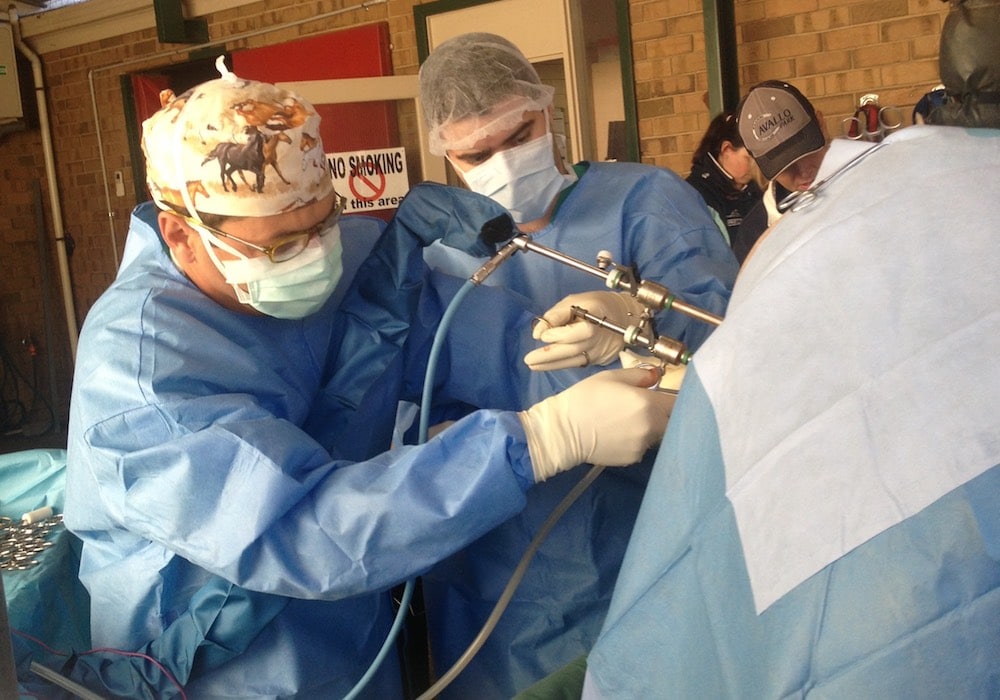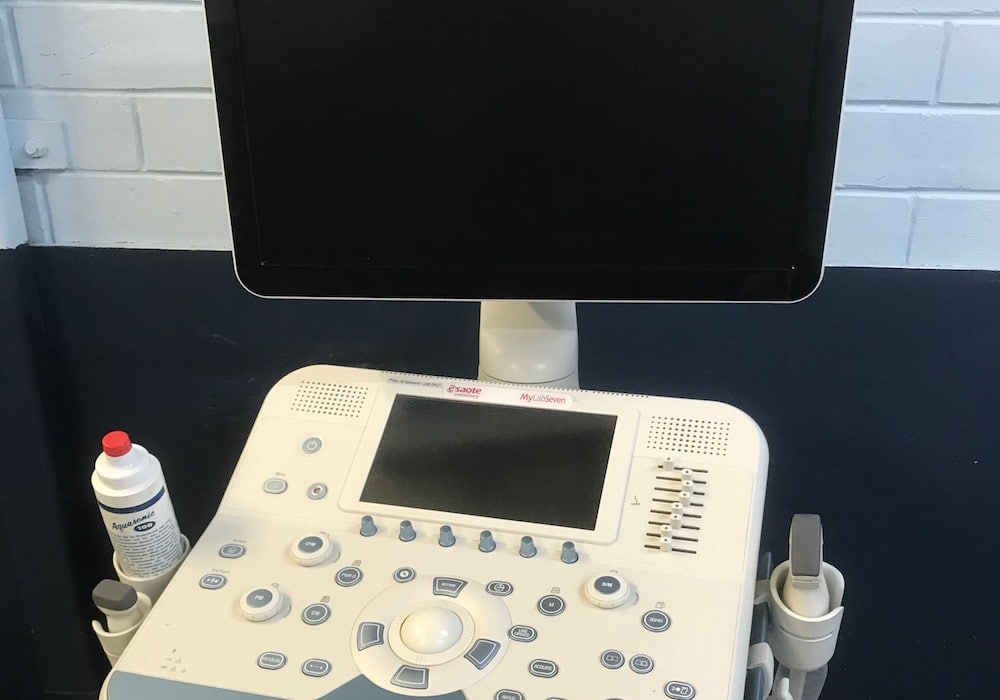At Morphettville Equine Clinic we perform all major elective and emergency surgical procedures in a fully equipped equine operating theatre with experienced veterinary anaesthetists, followed by intensive aftercare at the hospital. Many horses require intravenous fluids and medical management as part of their post op intensive care. We accept many referral cases from other practices in the region, which makes up around 30% of our caseload.
In the case of an emergency surgery our surgical team is available 24 hours a day.
We perform approximately 500-600 surgeries each year, which makes us one of the busiest equine surgeries in Australia and certainly the busiest in South Australia.
Dr. Todd Booth is the primary surgeon at Morphettville Equine Clinic. Todd is an Australian, European and RCVS recognised specialist in Equine Surgery, along with many other postgraduate qualifications.
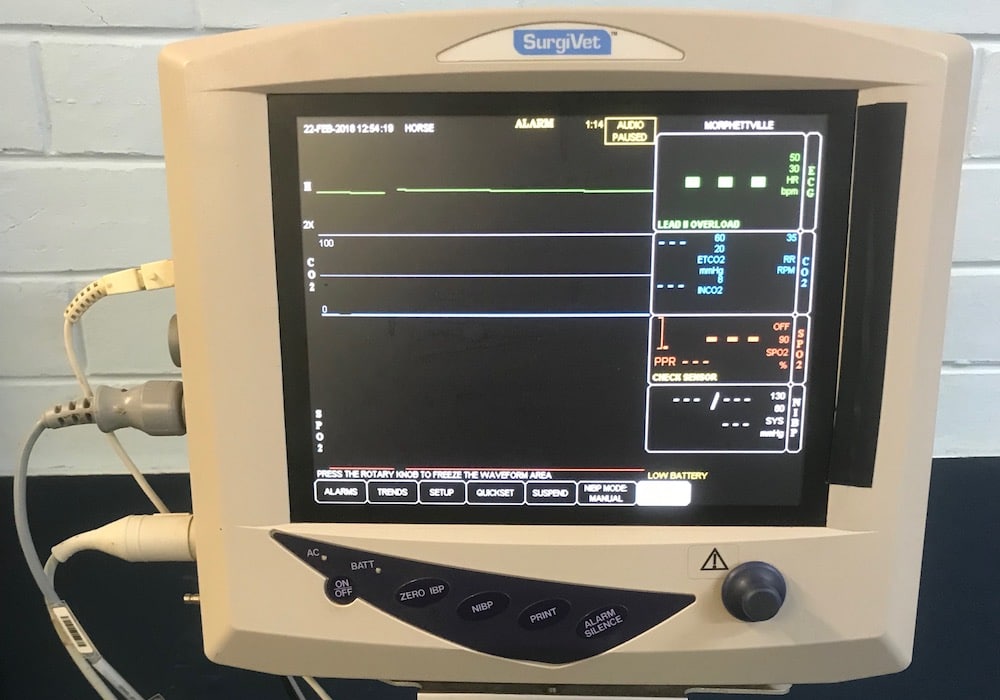
Orthopaedics
Our surgeons perform a range of orthaepedic surgeries from keyhole arthroscopic surgery to advanced fracture repair. Standing orthopaedic surgery can be performed in selected cases.
Horses with joint infection or sepsis will regularly present to our clinic for life saving surgery. Provided the cases are referred early the outcome can be relatively successful in many cases.
Angular and flexural limb deformities in foals are commonly seen at Morphettville. Early recognition and correction is essential.
Our surgeons offer periosteal stripping, single screw transphyeal placement and transphyseal bridging depending on the individual case requirement.
Colic Surgery (exploratory coeliotomy)
Colic is one of the most common conditions we see at Morphettville Equine Clinic. Clinical signs range from mild abdominal pain to severe pain and life threatening presentation.
Colic surgery is regularly performed by our experienced surgeons, anaethetists and nurses. The prognosis for a successful outcome in many cases is very good.
Our clinic has the ability to manage intensive medical cases and surgical cases which require intensive care post operatively.
Emergency colic surgery can be performed by our team 24 hours a day.
Survival rates are increased by recognizing and treating colic signs early and promptly.
Laparoscopy
Laparoscopic abdominal surgery enables the surgeon to examine the gastrointestinal tract and other areas of the abdomen such as ovaries/testicles using a camera inserted through small incisions in the flank.
In most cases the procedure can be performed in the standing sedated horse. This minimally invasive surgery results in a decreased risk of complications and a much shorter recovery time compared to other surgical options.
Laparoscopic surgery is sometimes indicated in cases of chronic or recurrent colic and weight loss.
Airway surgery and Equine sinus surgery
Upper respiratory tract conditions are a common cause of exercise intolerance and poor performance in the equine athlete. A variety of procedures are commonly performed including laryngoplasty (tie-back), laryngeal advancement surgery (tie-forward), aryepiglottic fold axial division (epiglottic entrapment surgery) and arytenoidectomies. Surgery of the head, nasal cavities, guttural pouches and sinuses are also performed. In many cases sinus surgery can be performed with the horse standing, under sedation and with local anaesthesia.
Wound management and skin grafting
Our hospital deals with difficult and wounds either assessed by our own primary clinicians or referred by veterinary surgeons in practice. These are frequently managed by hospitalisation, bandage changes, limb immobilisation, or by the use of skin grafting techniques.
Advanced Equine Dentistry
Dental disease is common in the horse and often results in secondary infection of the sinus tract. Dental surgery is routinely performed both under general anaesthesia and in the standing sedated horse under local anaesthesia. We routinely perform oral tooth extractions as well as other advanced dental techniques.
Gynaecological Surgery
Surgical conditions range from uterine tears or urine pooling in mares, to retained testicles or penile surgery may be necessary for a number of conditions ranging from tumours in the male.
Laparoscopy can be used to remove retained testicles (cryptorchids), or to remove ovaries in mares with ovarian tumours or cysts.
Standing surgery
Surgery can be performed under sedation and local anaesthesia depending on the specific condition.
Sinus surgery, laparoscopic abdominal surgery and reproductive tract surgery can be performed with the horse standing, under sedation and local anaesthesia.
Routine surgery and Field services
In addition, we are able to carry out a select few minor surgeries at your premises, provided facilities are adequate. These include routine castration (geld op) and some minor wound repairs.
